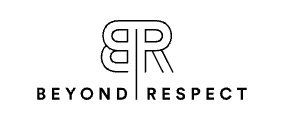We help companies and other organizations go beyond basic respect for labor and human rights through innovative and actionable steps.
Organizations can do so throughout their international operations and value chains solo or in collaboration with others in their ecosystem.
We offer support several ways:
Developing robust human rights and due diligence programs
When businesses and organizations begin their human rights journey, they tend to do so focused on only a narrow set of issues. Often, this creates challenges when translating their findings into actionable solutions to go beyond respect.

Strong diagnostics
We conduct assessments based our deep understanding of soft law expectations and hard law requirements, expertise, and invaluable input from our stakeholders. With this approach, we’re able to pinpoint and contextualize issues relevant to the company and its operations, and prioritize these issues using a blend of our knowledge, informed intuition, and stakeholder recommendations.

Embedded solutions
We develop mitigation actions in collaboration with those most closely affected. When rights-holders have the opportunity to define their needs and expectations, we’re able to raise awareness within the implementation team in charge. The result is the development of the right kind of tools and processes that both meet the new requirements and benefit the rights-holders.

Beyond risks, opportunities
We help organizations seize opportunities to take action to promote the enjoyment, realization, and fulfillment of human rights. This includes working independently or with others to support the socio-economic development of their rights-holders’ families and communities, or finding systemic solutions to societal challenges.
Improving engagement of stakeholders
Stakeholder engagement is at the heart of companies’ and organizations’ sustainability efforts. Because they’re most directly impacted in the areas of human rights and due diligence, their insight and opinions are invaluable. Unfortunately, well-intentioned business often struggle to meaningfully engage their stakeholders.

Stakeholder mapping
We conduct mapping of companies’ and organizations’ stakeholders specific to the human rights and due diligence space. This includes international organizations, investors, global and local NGOs, human rights institutions, labor administrations, unions, minority groups, communities, and their representatives.

Stakeholder engagement and communication
We help companies and organizations communicate strategically, rebuild trust, or open new channels of conversation with global stakeholders. In addition, we design tools and leverage technology to hear from workers in their value chains, set up fora for local communities, and develop safe channels for vulnerable rights-holders.
Accelerating collaborative initiatives
Over the last 25 years, we’ve seen an exponential increase in collaborations meant to tackle labor and human rights challenges all over the world. Through these well-meaning collaborations led by either businesses or multi-stakeholders we’ve seen some improvements, but it’s not nearly enough. Now is the time to take collective action focused on real and lasting systemic change.

Strengthening collaborations
We work with interested parties to develop focused collaborations with defined, ambitious goals as well as the the implementation tactics to ensure lasting change for the better. We provide strategic guidance, impactful facilitation, and invite both open-minded stakeholders and inspirational voices into the conversation.

Developing vertical collaborations
We help initiatives develop meaningful dialogue and collaboration with partners throughout their value chains to better respond and anticipate increasing due diligence expectations.
Exploring innovative approaches
Human rights and due diligence work is often linear and presented in a black and white report or a presentation deck. While we have become better at communicating impactful content in these formats, generally they fail to be engaging. The stories of stakeholders whose rights have been negatively impacted, the hard work necessary to change practices, and the positive outcomes possible can be more effectively conveyed through infographics, online tools and apps, immersive platforms, podcasts, and video.
Infographics
Through data visualization, we translate black and white metrics and complex narratives into a powerful format capable of communicating concepts quickly and clearly.
Online tools and apps
We develop online apps for businesses as engaging platforms that are both accessible, versatile, and exciting.
Immersion
We help companies and organizations explore gamification and immersive experiences to deliver information, raise awareness, and train staff on human rights.
